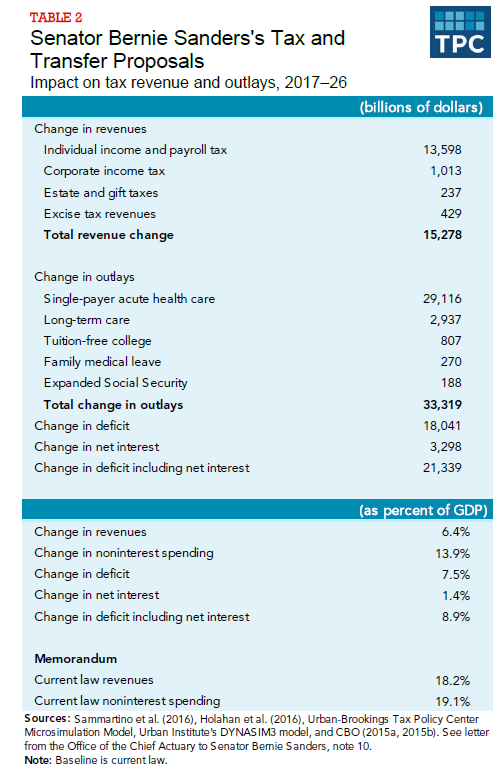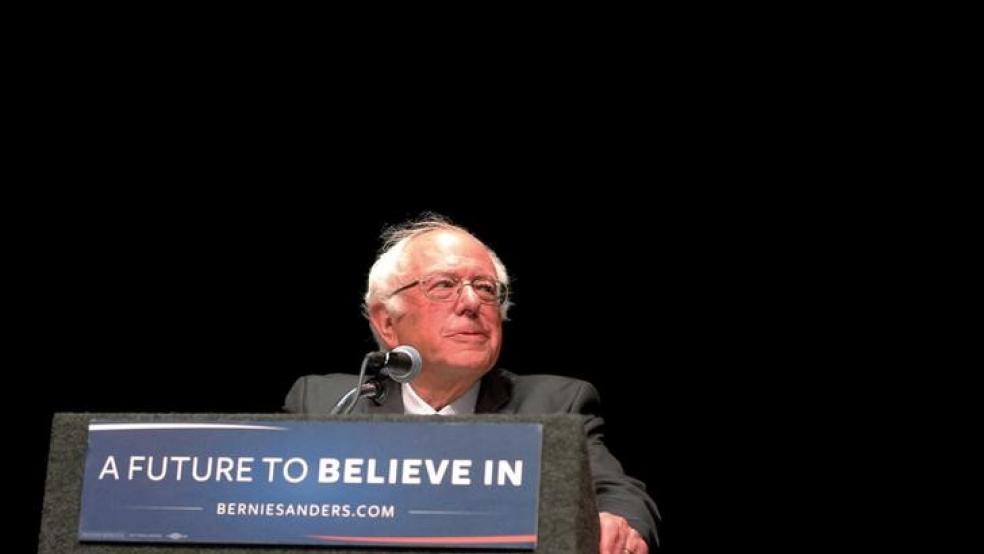Throughout the Democratic presidential primary, Hillary Clinton has pressed Bernie Sanders to acknowledge the real cost of his policy proposals, including universal healthcare and free public college tuition. Clinton has called his excessive spending plans a “fantasy,” knowing full well what it would take for Congress to pass them.
Organizations have estimated the impact on long-term U.S. debt in the trillions. But today, that price tag has hit a new high, according to an analysis from two highly regarded think tanks.
Related: Get Ready for Huge Obamacare Premium Hikes in 2017
Sanders' tax and spending proposals would boost the national deficit by $18 trillion over the next decade, according to a joint analysis released on Monday by the nonpartisan Urban-Brookings Tax Policy Center and the Urban Institute Health Policy Center.
The Vermont lawmaker proposed to increase federal tax revenues by $15.3 trillion over the next decade, mostly by boosting the rates for the wealthy, but even the revenue-generating policies still wouldn’t be enough to cover the tab for his vision of a greatly expanded federal government that includes greater health and education benefits.

"The dramatic increase in government borrowing would crowd out private investment, raise interest rates, further increase government borrowing costs and retard economic growth," according to the analysis.
Related: Trump Replaces His Untenable Debt Fix with a Different One
Strung together the proposals “would grow federal deficits and the national debt to unprecedented levels,” the study said. “A plan substantially financed by borrowing could raise interest rates and impose a substantial drag on the economy.”
Everyone would pay more taxes under the Sanders plan, and most of the new revenue, 25 percent, would come from the wealthy.
For instance, middle-income earners with a $41,000 annual income would actually gain an average of $8,700 since the new benefits would be worth more than the taxes they would pay. Meanwhile, the top 5 percent averaging around $650,000 would lose an average of $110,000 because the new taxes would outstrip the value of benefits doled out under a Sanders administration.
But overall Sanders' proposals would cost $33.3 trillion in new spending, mostly from his health care proposal that would see a government-run scheme incorporating all private insurance, Medicare, Medicaid, and the existing Affordable Care Act into a single system.
Related: Trump Would Risk 'Full Faith and Credit of the US’
“It would be significantly more generous than current-law Medicare or typical private insurance,” the analysis said. It means that Sanders’ proposals would balloon the deficit well beyond its current level of about $19 trillion.
The Clinton campaign is sure to seize on the new figure to argue Sanders’ positions simply aren’t affordable and would surely face universal resistance from Republicans in Congress, essentially rendering them dead on arrival.
The Sanders team told the Associated Press that the new analysis "wildly overestimates" the cost of the Vermont senator's healthcare plan.





